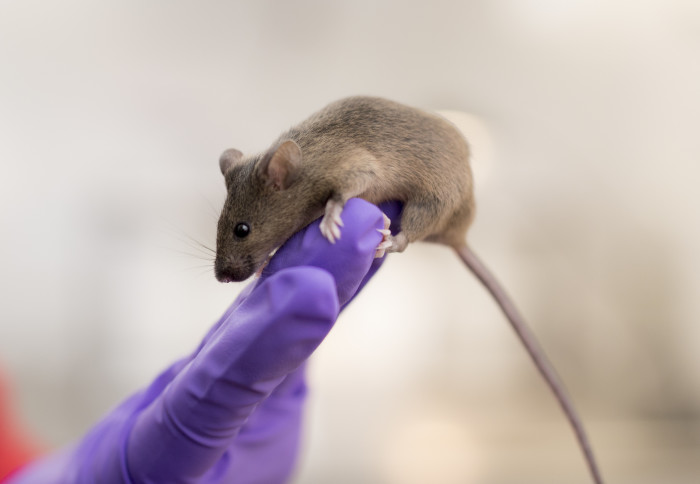Imperial animal research annual forum returns after a long break

Imperial’s animal research community underlined the College’s commitment to replacing, reducing and refining the use of animals, at a recent event.
The College has marked its commitment to excellence in the ‘3Rs’ with an annual Animal Research Forum since 2014.
The forum was paused for two years due to the pandemic and the Imperial animal research and 3Rs community met again on Thursday 24 November. Around 100 people attended the hybrid event on the White City Campus to hear a series of presentations from the winners of the 2022 Provost’s Award Prize and the newly established 3Rs PhD Network.
Showcasing excellence
Speakers included those who had been awarded Provost’s Prizes for excellence in animal research. These prizes recognise contributions to advancing the College’s mission to be ‘best in class’ for animal research and form part of Imperial’s commitment under the Concordat on Openness in Animal Research.
Dr Masanori Asai presented an innovative model to study Tuberculosis infection and Dr Claire Dunican and Dr Athina Georgiadou presented studies on choosing suitable mouse models for malaria. These projects completely replaced or significantly reduced the use of animals. The details of this year’s winners and their projects are available on the Imperial animal research webpage.
The Imperial 3Rs Hub has recently launched a Network for PhD students with 3Rs-oriented projects. The initiative aims to connect Imperial students working on the 3Rs and to offer them scientific and financial support. For the 3Rs PhD Network, Cecilia Dunsterville, PhD student in the Faculty of Medicine, presented her work - in collaboration with bioengineers - to develop a contrast-enhanced imaging technique to reduce animal use in researching gastrointestinal inflammatory diseases.
Professor Ian Walmsley, Imperial’s current Provost and Establishment Licence Holder for animal research, praised the speakers for their achievements. “I am delighted to meet again with so many people engaged and actively thinking of how we improve our research with animals,” he said.
Animal model for vaccine revolution
The afternoon concluded with the James Stirling Lecture, in honour of Professor Stirling, a distinguished physicist who was Imperial College London’s Provost from 2013 to 2018 and the College’s Establishment Licence Holder for animal research, championing this area of Imperial’s work.
This year’s guest speaker was Professor Robin J Shattock, Head of Mucosal Infection and Immunity in the Department of Medicine, which took the audience through his journey of using animal models to develop self-amplifying RNA vaccines with a focus on the race to develop a Covid-19 vaccine.
Article text (excluding photos or graphics) © Imperial College London.
Photos and graphics subject to third party copyright used with permission or © Imperial College London.
Reporter
Press Office
Communications and Public Affairs
- Email: press.office@imperial.ac.uk
